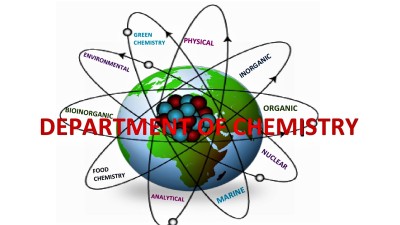The objective of this course is to enable the students to
- understand and apply various theories pertaining to the
<!--[if !supportLists]-->●
<!--[endif]-->Structure of atom Classify elements based on different criteria
<!--[if !supportLists]-->● Comprehend the conditions favorable for ionic bond formation and understand the properties of ionic compounds
<!--[if !supportLists]-->● Apply the concept of Hybridization and VSEPR Theory for determination of molecular geometry and
<!--[if !supportLists]-->● Teach various theories pertaining to acids, bases and salts
What will i learn?
- At the end of the course the learner should be able to- 1. Visualise the structure of atom 2. Classify elements based on physical and chemical properties. 3. Comprehend the properties of ionic compounds. 4. Identify the structure of inorganic compounds. 5. Explain the existence of special types of compounds based on weak binding forces. 6. identify acids and bases and predict the nature of salts.
- 10+2 with Chemistry as one of the subjects
- Chemistry as a major or minor subject at UG level
-
Bohr Postulates & Hydrogen Spectrum
Preview 00:38:42
-
De Broglie Theory & Heisenberg's Uncertainty Principle
Preview 00:21:03
-
Schrodinger Equation & Quantum Mechanical Model of Atom
Preview 00:33:53
-
Electron Configuration
Preview 00:43:52
-
The Periodic Table: Arrangement of Elements
Preview 00:38:29
-
The Periodic Table: Trends in Properties
Preview 00:41:55
-
Unit 1 Lesson Content - Text file
Preview .
-
Types of Chemical Reactions
Preview 00:33:40
-
2.1-INTRODUCTION TO IONIC BOND
Preview 00:43:56
-
2.2-Lattice Energy
Preview 00:25:07
-
2.3-BORN-HABER CYCLE
Preview 00:27:03
-
2.4-FAJANS RULE
Preview 00:25:12
-
Lewis Dot Structures - 1
Preview 00:37:36
-
Lewis Dot Structures - 2
Preview 00:19:40
-
VSEPR Theory - 1
Preview 00:23:46
-
VSEPR Theory - 2
Preview 00:44:16
-
Valence Bond Theory Part-1
Preview 00:21:33
-
Valence Bond Theory Part-2
Preview 00:19:00
-
Valence Bond Theory Part-3
Preview 00:19:46
-
Molecular Orbital Theory Part-1
Preview 00:22:37
-
Molecular Orbital Theory Part-2
Preview 00:16:22
-
Molecular orbital Theory Part-3
Preview 00:16:07
-
Molecular Orbital Theory Part-4
Preview 00:11:11
-
4.1 Metallic Bond - Properties of Metals
Preview 00:19:55
-
4.2 Valence bond theory
00:10:35
-
4.3 Band Theory of Solids
Preview 00:14:44
-
4.4 Hydrogen Bonding
Preview 00:14:32
-
4.5 Van der waals' forces
Preview 00:14:32
-
Theories of Acids & Bases
Preview 00:46:03
-
Types of Chemical Reactions
Preview 00:33:40
-
Salt Hydrolysis
Preview 00:32:52
-
Pearson Theory - HSAB Principle
Preview 00:29:15
Frequently asked question
What is SOWeLEARN?
What is a SMOOC
Who can pursue General & Inorganic Chemistry Course?
How to register for the course?
What are the advantages of doing the course?
What are the requirements for the award of course completion certificate and 2 credits?
Dept of Chemistry
A 66 year old department with 10 teachers, 4 technical assistants, 6 student laboratories & 1 research lab. Teaching is done at UG, PG & Intermediate levels
Teaching Content Generation & Research

Write a public review